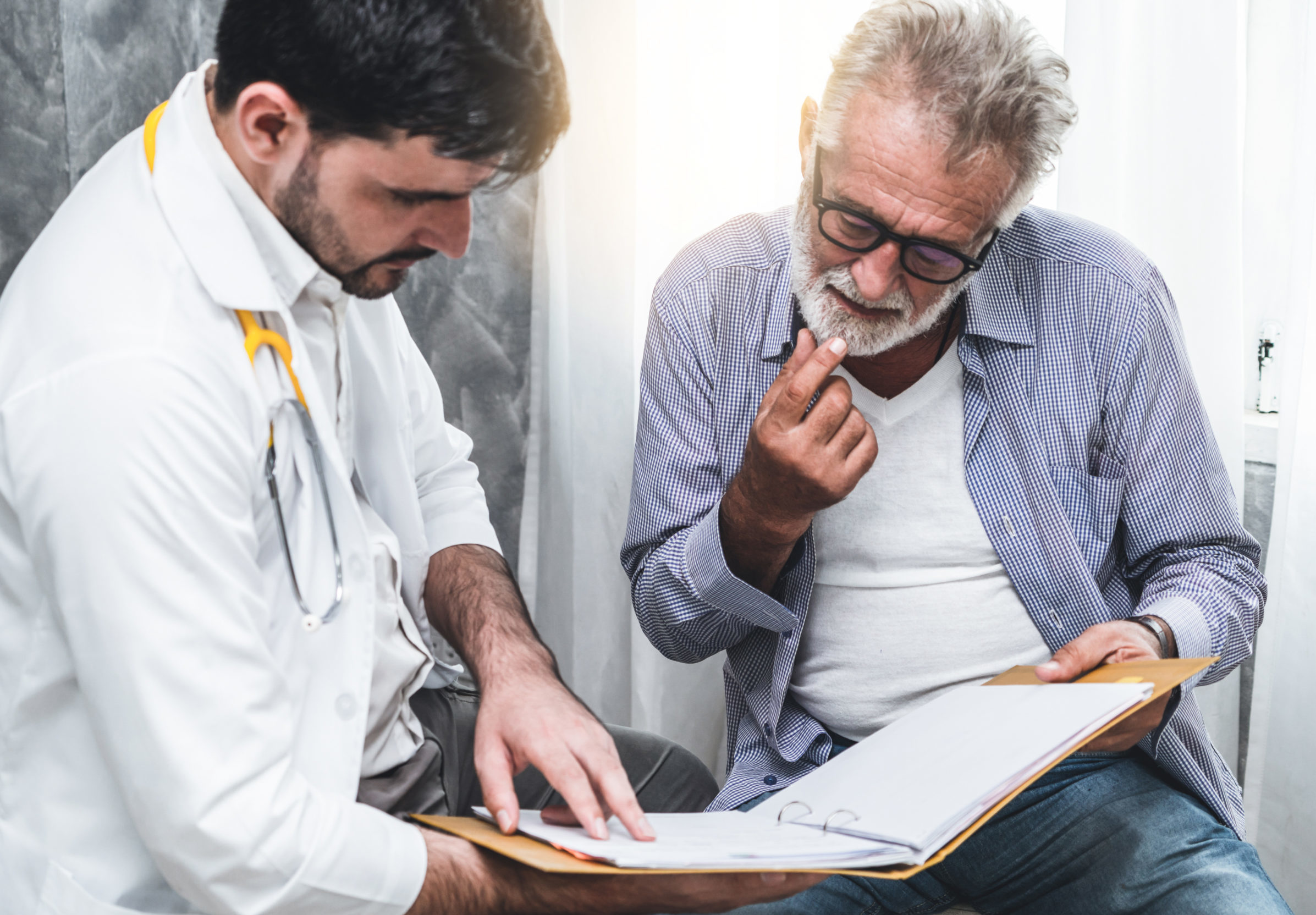Author: Andrew Ciupek, PhD, Senior Manager of Clinical Research

Due to the increasing number of approved targeted therapies for the treatment of lung cancer, clinical guidelines recommend that every patient receive comprehensive biomarker testing. Despite the importance of comprehensive biomarker testing, some people with lung cancer can face barriers that make it difficult to either obtain appropriate testing, or use the results of their testing to make informed treatment decisions.
One such barrier is the financial component of comprehensive testing. For example, biomarker testing rates are lower among patients who are uninsured, Medicaid eligible, or living in poverty (Gross, 2020; Kehl, 2018; Stein, 2021; American Cancer Society Cancer Action Network (ACS‐CAN), 2021). Also, while insurance provider coverage for comprehensive biomarker testing in general has increased in recent years, there is still considerable differences between different providers in the type of tests they cover, especially when they are new and emerging (ACS-CAN, LUNGevity, 2020).
Another barrier in comprehensive biomarker testing is having difficulty receiving or interpreting biomarker testing results. Some biomarker testing providers give a copy of testing results to doctor’s offices, but not directly to patients, which can lead to lack of awareness of testing progress. Additionally, many biomarker testing reports contain large volumes of information but often lack a summary for patients to more easily interpret. Even though these barriers exist, there are different resources and sources of support that people with lung cancer can turn to for help with the biomarker testing process.
Here are some resources that can help with the financial impacts of your biomarker testing:
- Support services and financial assistance: Many biomarker testing companies offer support services that communicate with your insurance provider to help with coverage issues. Some also offer a financial assistance program for eligible people with high need. Taking advantage of these resources often starts by calling a phone number or filling out a form both of which can be found on the company’s website. If you are not sure which company is performing your comprehensive biomarker test, you can ask your doctor.
- Social workers: Many cancer centers, clinics, and hospitals have social workers that can help you navigate financial concerns with your care and may know of local sources of support and assistance that could help. If you have not been offered a chance to connect with a social worker, ask your doctor or another staff member where you receive care if one is available.
Resources that can help with receiving or understanding your biomarker testing results:
- Online updates: Many biomarker testing companies allow you to sign up online to receive more information on your testing progress. Also, even though they many not automatically send a copy of your testing results to you, they often will send a copy of your results if you request it yourself, as long as the results have already been sent to your doctor first – information on how to do so will usually be on the company’s website.
- Treatment navigation tools: It can often be difficult to determine what treatments or clinical trials are available to you based on your biomarker testing results. However, there are online search tools that make it easier to search for clinical trials by asking simple questions about your diagnosis and treatment so far – an example is the clinical trial search created by Antidote that can be found on our website Many patient advocacy organizations, including GO2 for Lung Cancer, also have a HelpLine or other resources that you can contact to learn more about the treatments that exist for lung cancer. Our LungMATCH program puts you in contact with a navigator for a personalized discussion of what your biomarker testing results may mean and what questions you should ask your doctor.
We are committed to learning more about these biomarker testing barriers to develop better solutions to help people with lung cancer. Our research studies and initiatives specifically focus on ways to ensure all patients can access and afford comprehensive biomarker testing, have access to testing results that are communicated in an understandable manner, and find appropriate clinical trial options in a patient-friendly way. Contacting us for support not only helps you find the resources you need, but it also allows our organization learn from the stories you share with us. Your experience helps us better understand the biggest issues that people with lung cancer are facing today and continue to press for change and solutions that can help make these difficulties things of the past.

Leave A Comment